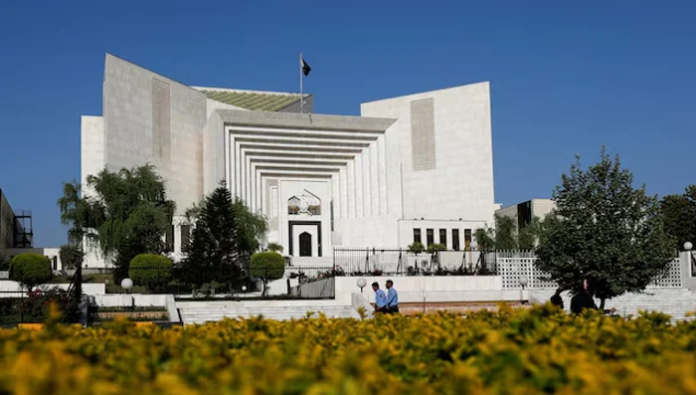Sources say some judges suggested writing a letter to govt over 27th Amendment as institutional response
ISLAMABAD, NOV 20 (DNA): The Full Court, headed by Chief Justice of Pakistan (CJP) Yahya Afridi, last week discussed a senior judge’s proposal for en masse resignation, with majority of judges disagreeing with it.
The meeting later unanimously approved the Supreme Court Amendment Rules 2025.
According to the Supreme Court (SC) sources, around 13 judges attended the Full Court Meeting called in order to discuss the resignations by two apex court judges. Two of the top court’s 23 judges, Mansoor Ali Shah and Athar Minallah, have already resigned.
Justice Aminuddin Khan, Justice Hassan Azhar Rizvi, Justice Aamir Farooq and Justice Baqir Najafi did not attend the meeting, since they have been nominated as judges of the Federal Constitutional Court, following the passage of 27th Constitutional Amendment earlier this month.
Also, Justice Muneeb Akhtar, Justice Ayesha Malik and Justice Musarrat Hilali could not attend due to personal engagements. The meeting convened in the chamber of CJP Afridi.
At the outset, some judges said it was a sad day that some of the judges had resigned and the meeting must discuss the judiciary’s response to the 27th Constitutional Amendment, sources said.
One of the judges asked what kind of response that might be. He went on to ask what constitutional and legal authority the Supreme Court has to stop parliament from exercising its legislative powers.
At this point, some judges suggested writing a letter to the government on behalf of the Full Court, sources said. The chief justice said the judges should have discussed the issue with him instead of writing letters. “My doors are always open for everyone. I don’t think it’s the right thing to write a letter to the government,” he said.
The apex court has the power of judicial review, which the court can use to determine what is ultra vires, he said; asking, otherwise, what powers judges have to stop the parliament from legislation. How can the parliament be prevented from passing a law, he asked.
Despite chief justice’s response, several participants of the meeting kept insisting on institutional response.
A senior judge said there is only one way of giving “institutional response”, and that is resignation by all judges, including the chief justice, from the Supreme Court. However, majority of judges disagreed with the proposal. Later, the meeting took up the Supreme Court Amendment Rules 2025 and approved them.

















